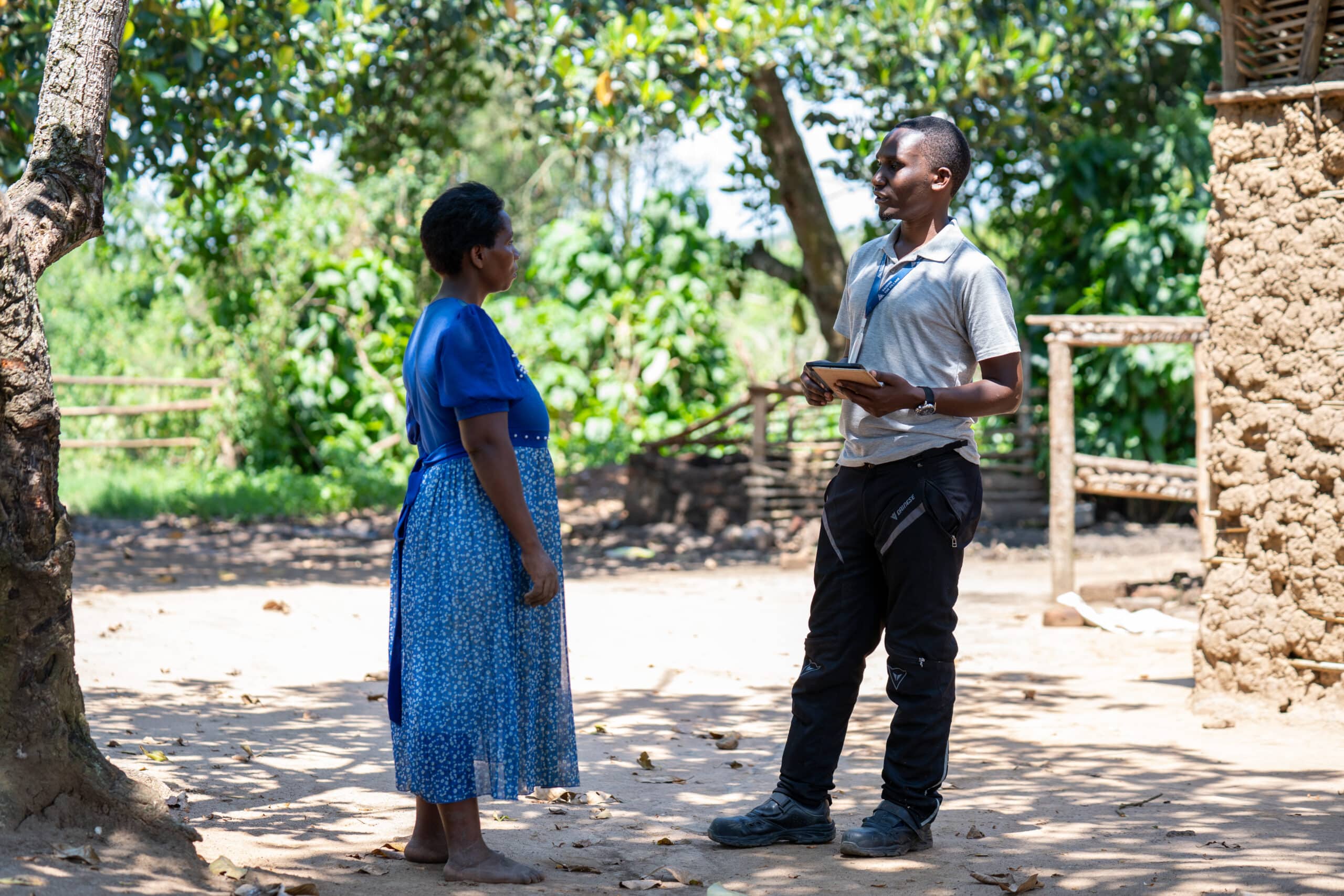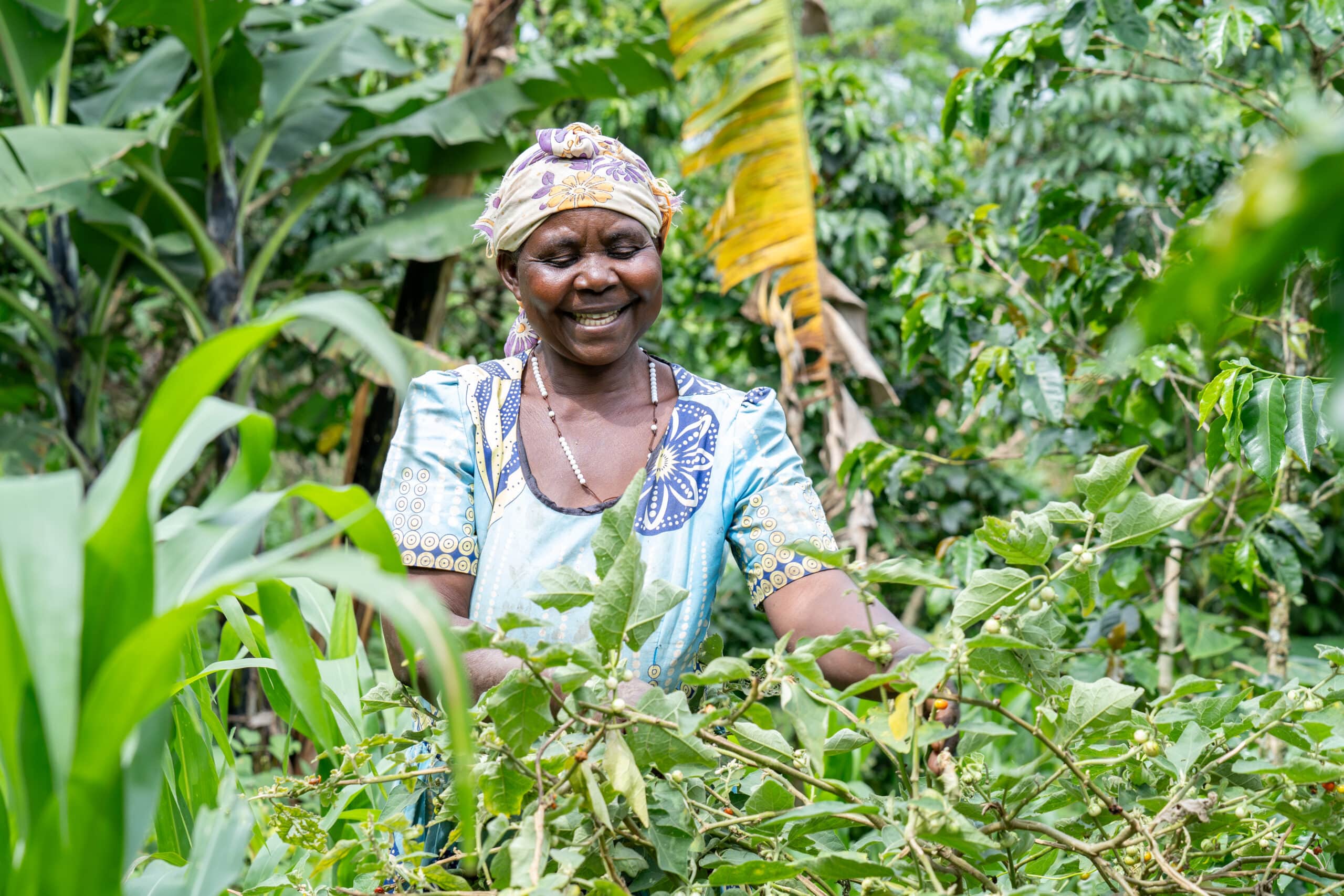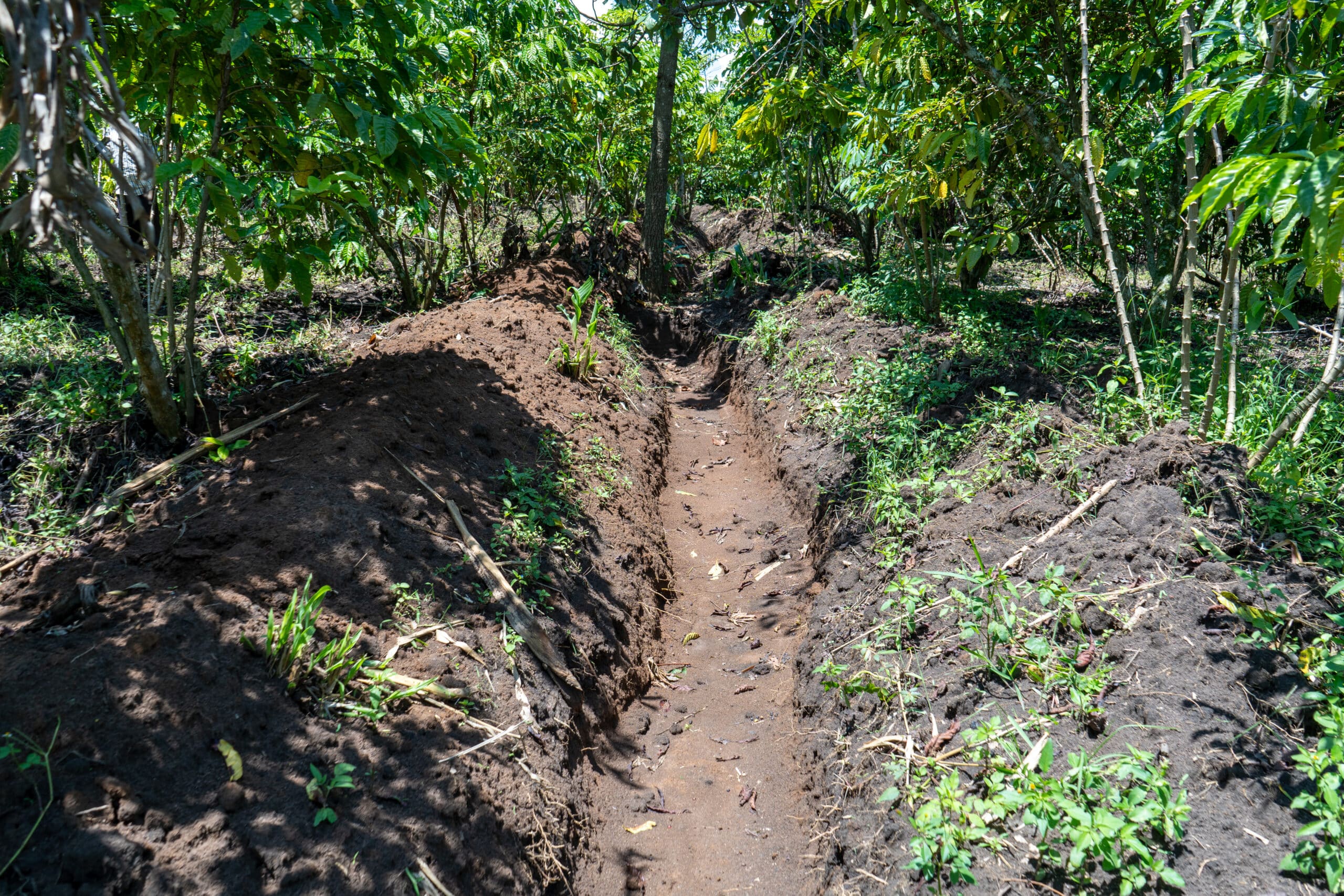Confident Steps Towards a Better Tomorrow

Christine, a 38-year-old mother of eight, has always dreamed of providing her children a better life. Balancing the demands of her large family with the challenges of farming in rural Uganda has been a task. Although Christine has been growing coffee for over five years, traditional farming methods, inputs, and limited knowledge of modern techniques would result in low yields and income. Things gradually began to change when RTV partnered with her community in 2024.

Christine participated in various training sessions focused on improving agricultural yields, addressing barriers to development, including access to affordable credit, food security, and health, and improving overall well-being. Technical agriculture sessions covered the usage of good-quality inputs and modern practices. Practices such as using organic manure and compost, while being new for the community members, were especially effective. They also received good-quality hybrid seeds to complement the latest practices. Applying these techniques to her one-acre coffee plantation, she watched her plants thrive. “With the positive changes I’ve seen since using organic manure, I’m already hopeful for a big harvest soon,” she says with a smile, standing proudly beside her flourishing coffee trees. One of the key practices she implemented includes building trenches for better water retention and soil health. Fausta, a single mother from the same district, shared a similar experience. “My coffee trees started producing more cherries ever since I started applying organic manure,” she shared.

The community also participated in financial literacy training, and members worked together to form Village Savings and Loan Associations (VSLAs). With inclusive leadership and transparency, VSLA provided easy access to affordable credit. Christine’s management skills earned her the role of treasurer. Her neighbours now trust her to handle their group’s finances—a responsibility she takes seriously, saving diligently between UGX 1,000 to 5,000 weekly. Fausta also joined a VSLA in her village and felt more connected to her community. “Becoming a Women VSLA member helped me understand various things like bookkeeping and consistent saving, and I also now meet and interact with fellow members from my community regularly,” she shared. To provide their families with a wholesome and nutritious diet, Fausta and Christine also planted vegetable gardens using the seedlings they received. At the same time, they also installed tippy taps and covered pit latrines for improved hygiene and health.

Motivated by the changes, Fausta plans to open a store with her community members and improve their access to bigger markets. “We participated in training on collective marketing and selling in one of the sessions. We plan to open a coffee store to store our dried coffee beans as we find favorable markets,” she shares proudly. Meanwhile, Christine plans to borrow from her VSLA to sell coffee on her own. “I hope to ensure that my children continue going to school with the profits from the coffee selling,” Christine shares with a smile.
Be part of our journey. Support last-mile communities by supporting Raising The Village.
Let’s Stay Connected

